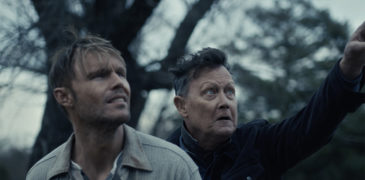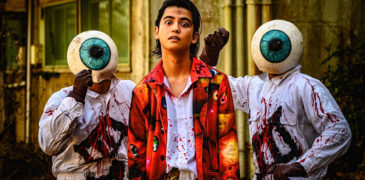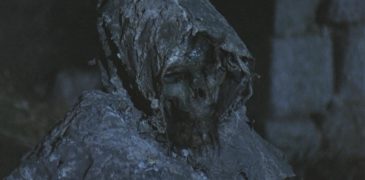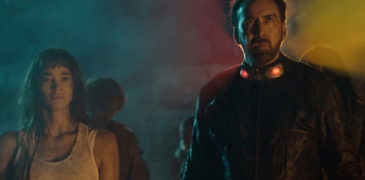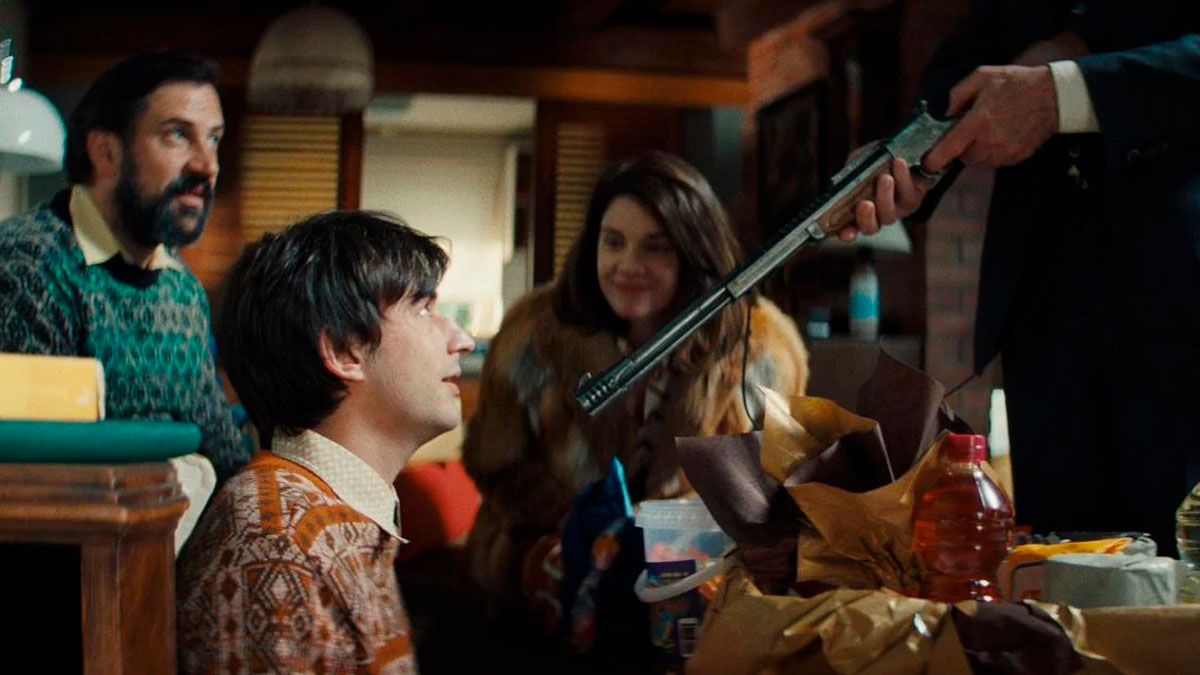
Opening with an awkward family greeting before a Christmas Celebration, The Uncle is familiar to those who have pushed through awkward gatherings. However, the sinister undertone of the film is subtly revealed as the titular uncle presents his gifts with forced smiles, a ghastly dinner, and a family video that lacks enthusiasm to the point of feeling perverse once played back.
As ‘uncle’ leaves for the night and the family is given respite from the chokingly awkward interaction, the severity of the situation begins to seep in. The family is caught in a cyclical act of having to perform a Christmas celebration for their ‘beloved’ uncle. To what purpose and conclusion is best left to the experience as the viewer, yet, what is undeniable is the dark, charismatic charm of David Kapac & Andrija Mardesic’s The Uncle will hold over the right kind of audience.

The movie has generally found favor online billed as a ‘comedy’ or, to extend on that, ‘dark comedy.’ While this description is apt to a point, it is also slightly misleading on how one should approach the work. The Uncle is exceptionally bleak and dry in its approach to humor, stifling audiences with a dreary repetition played out by a broken family at the point of exhaustion. Any laughs come out of necessity to not get dragged too heavily into the scenario as opposed to crafting comedic stings. The only exception to this is the conclusion, which though still dark, gives the impression that much of the suffering was to reach a single punchline.
There is a hint of more significant subtext, with the Croatian film touching on power struggles, whether generational or cultural, which is, honestly, hard to ascertain from an outsider with limited knowledge of the region or its history. Still, themes of abuse of power are inherent in any culture, and enjoyment of The Uncle does not depend on knowing what the film is attempting to represent (if anything).
However, the dry, prolonged approach to comedy and a possible cultural disconnect will limit the potential audience. In earnest, the production speaks to the more masochistic film fans who thrive on confusion and repetition of themes. Each visit from ‘uncle’ slowly unravels the meaning behind the holiday celebrations but does not show its entire hand until the final moments—being comfortable wallowing in the sufferings of others is vital. Moreover, those who hold Christmas close to their hearts will find the bastardization of the holiday into empty platitudes forced upon a family unagreeable.
Still, despite the rather bleak approach, there is enough substance and consideration for character exploration that the movie never feels like it is purposely trying to offend or shock. This is a crucial distinction that needs to be made, as the film does not come across as ‘edgy’ or trying hard to emphasize shock. Everything is presented matter of fact, and revelations about the peculiar scenario never feel thrown in solely for shock value.
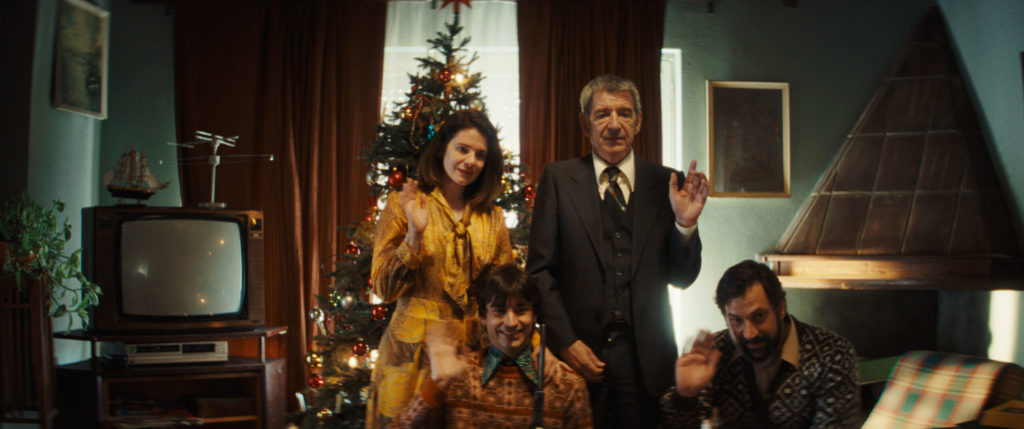
The delicate nature and focus on a broken family make performances vital to the production’s success. While the initial bravado of ‘uncle’ (Predrag ‘Miki’ Manojlovic) grabbing balls, giving awkward hugs, and conducting the flow of Christmas makes a strong first impression, the family unit becomes the primary focus. Notably, Ivana Roscic, as the broken-down matriarch Majka, brings a realistic uneasiness to her role—constantly finding the greater pressures put on her character. Roko Sikavica as Sin and Goran Bogdan as Otac get equal moments to shine under the oppression of ‘uncle.’ The family’s plight and desire to see them overcome the cyclical hell they are trapped in only intensify as the film progresses off the back of phenomenal performances.
Cinematography, set design, and score all further complement the production. Set in a nondescript year, the home feels lived-in and wears the weight of having to play out the daily facade of celebrating Christmas. From a freezer full of ghastly-looking turkey prepared daily to stacks of cigarettes and toy guns tucked into corners to keep the illusion of getting a gift for the first time, the movie is aptly claustrophobic despite the large set and the spacious land that surrounds the family. The score, while minimal, has these fleeting moments of atmospheric electronic that help with the blurred line of modern versus traditional that is never made expressly clear. Consequently, the relatively simple and slower-paced film has many moments of intrigue thanks to its considered construction.
The Uncle asks a lot of its audience, and not everyone will be willing to give themselves to the dark deconstruction of a family with little actual comedic respite. That final moment, however, is pure bliss for those who love to dwell in the muck and go along with any journey that challenges regular film conventions.
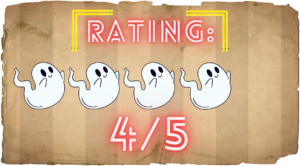
We Watched The Uncle as Part of the 2023 Fantastic Fest Line-Up
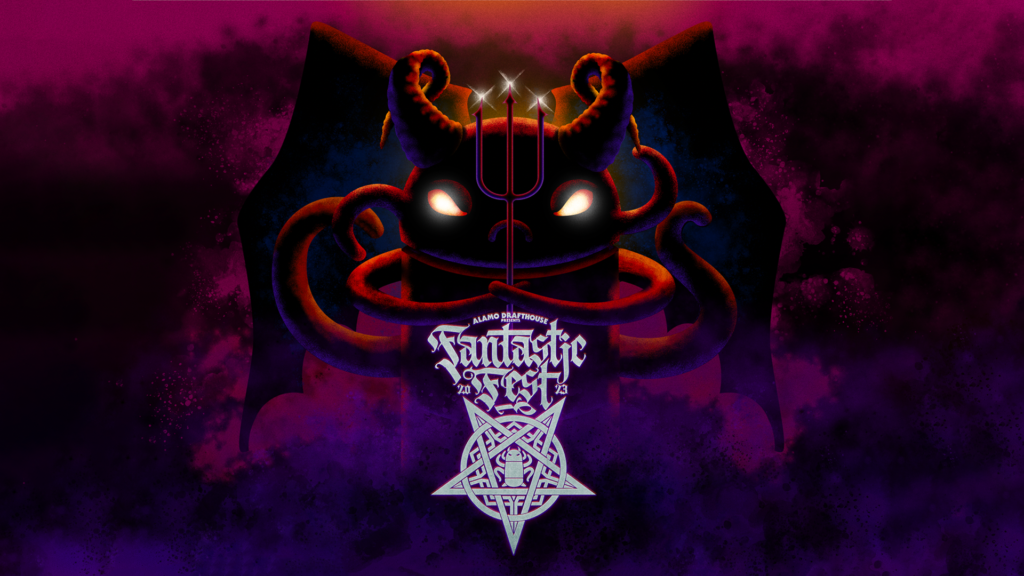
More Film Festival Coverage
The anthology film is almost as old as the industry itself. Perhaps the earliest example is D.W. Griffith’s Intolerance (1916), the director’s petulant response to wholly justified accusations of racism…. At a dilapidated farmhouse that is slowly decaying Josiah (Robert Patrick), the aging patriarch of the Graham family ekes out a defeated existence boozing his way through his remaining life… The seminal American folk horror film Eyes on Fire has been unavailable on home video for decades. Thankfully, the good people at Severin Films has given the title a 4k… Back in 2008, Japanese filmmaker Yoshihiro Nishimura made a name for himself in the Extreme Cinema scene with the fervently adored Tokyo Gore Police, a science fiction splatter epic starring… Summer in Montreal is always an exciting time. Downtown, Ste. Catherine Street is cordoned off from traffic beneath de Bleury for the Jazz Festival, where past years featured free outdoor… Prisoners of the Ghostland wastes no time engaging viewers with its opening scene depicting the curious contrast of the stark white interior of a bank with its many patrons donned…Midnight Peepshow (2022) Film Review | Down the Rabbit-Hole…
What Josiah Saw (2021) Film Review – The Legacy of Trauma
Eyes of Fire (1983) Film Review – Early Stirrings of Folk Horror
Tokyo Dragon Chef (2020) Film Review – Yoshihiro Nishimura’s Kooky Musical Comedy and Love Letter To Ramen
Tombs of the Blind Dead Film Review (1972): Fantasia Fest 2021
Prisoners of the Ghostland (2021) Film Review – East Meets West for a Radioactive Psycho-Western

